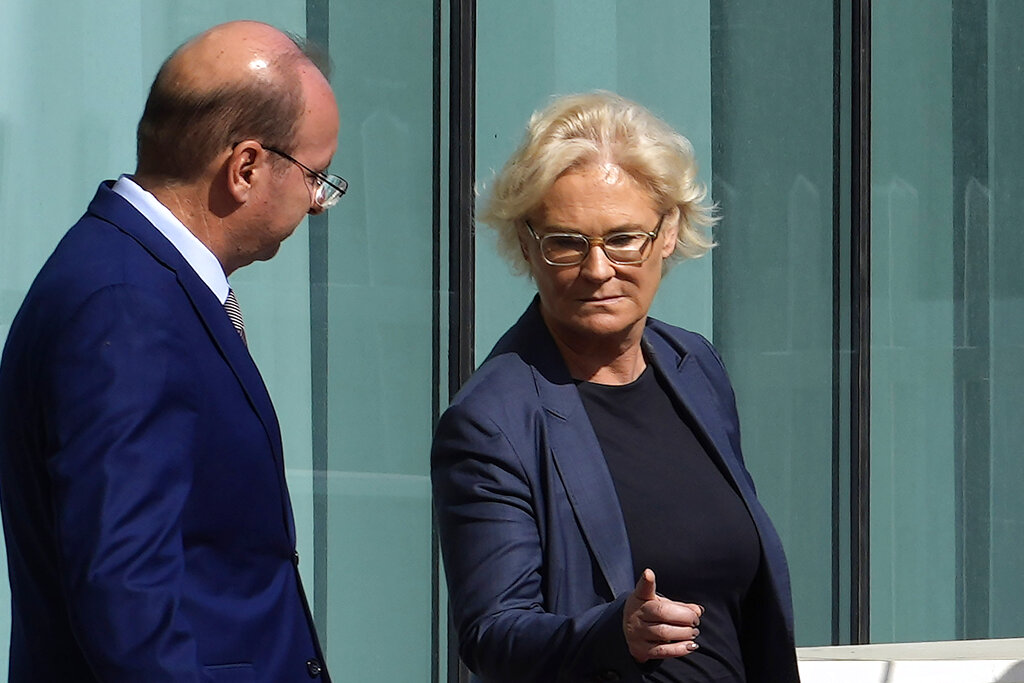German Social-Democrat (SPD) Defense Minister Christine Lambrecht could be ousted by Chancellor Olaf Scholz following a series of mistakes, Mandiner political commentator Béla Révész writes.
Scholz announced a shift in Germany’s decades-long defense policy on Feb. 27 in reaction to Russia’s invasion of Ukraine three days before. The speech has become famous for the biggest change in defense policy since the end of World War II.
Named by the press the “Zeitenwende” (“turning point” or “historic shift”) speech, it announced Germany’s commitment to increase defense spending to 2 percent of GDP, add an extra €100 billion to the defense budget, and make Germany Europe’s leading military power.
The loudly proclaimed about-face suggested that Germany, with its immediate and supposedly brutal military build-up, would once again become the leading military power in Europe, to the extent that the United States, which is the sole dominant power in NATO, might even be able to entrust it with the defense of Europe.
The supposedly historic shift, however, is taking much longer than expected, mostly, it seems, due to Lambrecht’s inadequacy. Her first announcement of German military aid to Ukraine — the sending of 5,000 helmets — was largely derided, but by autumn she had made a series of other mistakes.
In September, Germany said that it had run out of options for arms supplies to Ukraine and could not provide the requested Dingo combat vehicles. Two weeks later, it announced that 50 Dingoes would be sent to Kyiv, thoroughly confusing supporters of a unified and at least broadly predictable policy, including its own coalition partners.
In early December, Warsaw went ballistic when, without consulting the Polish side and in breach of a confidentiality agreement, Lambrecht announced to the public, before the negotiations had been concluded, that Germany would deploy missile defense systems in Poland.
But her biggest mistake was that by November, it had transpired that the Bundeswehr’s ammunition stocks were so low they would last less than two days in the event of a war.
Sebastian Schäfer, a member of the Bundestag’s Budget and Finance Committee from coalition partner the Greens, pointed out that the current situation has been a problem for years. In the light of this, he said, it is incomprehensible why Lambrecht did not mobilize resources — which were very much available — at the outbreak of the war and why the scandalous supply situation only came to light in the ninth month of the war.
Viola von Cramon, a Green MEP from the coalition, put it more simply when she said that perhaps they could appoint a defense minister who could do the job.
“This is all very embarrassing. It is embarrassing for the Bundeswehr, for Germany, but also for the European Union and NATO,” she said.






